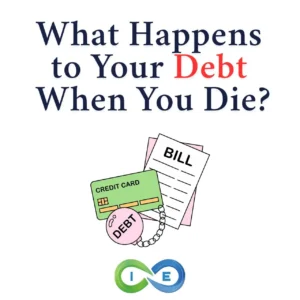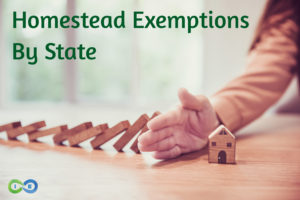“Discipline equals freedom” – Jocko Willink
At I&E, we want you to be financially free. However, without financial discipline, there is no financial freedom.
The following article touches upon some of our philosophy of money and highlights important steps you can take towards financial discipline on the path to financial freedom.
The simple fact is people who understand money are happier people.
And know this, if you truly desire financial freedom you must be intentional. It will not happen by chance. Begin your journey towards financial freedom today by developing financial discipline.
See also, Rich vs Poor: What the Wealthy Teach Their Children.
Create a Financial Blueprint for your life
The following financial blueprint is a system you design that puts you in control of your finances, helping you become financially free.
Your financial blueprint is an ongoing system that requires your intention, attention, revision and determination.
This is a journey for which the ultimate destination is a life lived well, focused on your unique purpose. A life that builds wealth and leaves a legacy. This is the journey, that is, a life lived to the fullest, always growing, always learning, always improving.
Get Financially Educated
ABL – Always Be Learning. To grow in your financial literacy you need to learn. The more you learn, the more you grow. It is a cycle of life, to learn and grow.
And your education should not be focused exclusively on financial education. Rather, seek a holistic approach to learning, focusing on financial, spiritual, mental, emotional and physical development. Your lifelong goal should be developing yourself into the best you that you can be.
What should you read? You can start by visiting our book reviews page to see our recommendations.
The key is to to begin. Find books you are interested in. Always be learning.
Get Organized
“Clean your room” – Dr. Jordan Peterson
An important step on your journey to financial freedom is to get organized. Focus on getting your finances in order.
For example, make a list of your bills. Create some files that allow you to keep track of your finances. If you are a business owner, this may also include keeping track of business expenses and receipts.
Put together a system that gets your financial house in order. It might also initially include consolidating different accounts. Don’t make this harder than it needs to be.
Create and Maintain a Budget
A budget allows you to plan. As the saying goes, if you fail to plan, you plan to fail.
Make sure to log every month the money you brought in (your inflow) and the money that is going out (outflow). Create categories to track your money, providing you with a monthly snapshot of where your money is going.
For example, some helpful categories would be:
- Rent/Mortgage
- Food
- Clothing
- Utilities: Gas/Electric/Water
- Auto Insurance
- Gasoline
- Medical Insurance
- Giving
- Saving
- Debts
- Education
- Entertainment
Now track your spending in each of those categories. Force yourself to create a limit for each, so that you live within your means. That is, until you can find a way to expand your means.
Multiply Purchases by 12/30/365
After creating your budget you should have a better idea of where your money is going. Once you see what you are spending your money on every month, do a little exercise that will help bring perspective.
For every recurring expense that you pay monthly, multiple it by 12. For every daily expense, multiply it by 365.
The next step is to ask yourself, “Self, should I be spending X dollars on that item each month, each day or each year?”
For example, if as part of your daily ritual you spend $5 at Starbucks on your way to work, multiply $5 by 365 days in the year. $5 times 365 days is over $1,800 a year.
So, the question becomes, is that the best use of your resources? Is there a way to save money, by purchasing a smaller size, making coffee at home, or ditching the habit altogether?
Try and do this exercise with all your expenses. It will help you prioritize your spending and bring awareness to where your money is going each month.
Emergency Fund
Having an emergency fund is one of the areas where we agree with the financial gurus, such as Dave Ramsey. Having an emergency fund that represent 6-12 months of expenses provides peace of mind, which helps you get your mind off of money problems and onto money solutions.
You see, if you are always concerned about how you are going to make ends meet, you will never free your mind to focus on how you can expand your means.
Forced Savings
Once you have your rainy day fund set aside, begin a forced savings plan. We recommend using cash value life insurance. Each month the insurance company will withdraw your insurance premium from your bank automatically. You will begin to see your life insurance premium as just another expense or bill. But the long term implications are incredible.
For example, there are many advantages of life insurance that builds cash value. We have previously written articles on the different whole life insurance pros and cons, but a few benefits worth a brief mentions are as follows.
Your life insurance cash value account provides true compound interest growth. Your money grows tax deferred. And you can access your money by borrowing against your cash value income tax free. And the internal returns of your policy can be in excess of 4-5%. What other savings account produces equivalent returns?
Avoid Bad Debt
Remember, when you spend more than you earn by borrowing, there will be a time later in life you will have to spend less than you earn to afford that debt. – Frank Jurs
Robert Kiyosaki, in his book Second Chance, writes that there are two kinds of debt. Debt that takes money out of your pocket and debt that puts money into your pocket.
Debt that takes money out of your pocket is a liability.
Debt that puts money into your pocket is an asset.
So, it is time to get rid of bad debt. Pay off those high interest rate credit cards. And avoid using credit cards in the future unless you have the means to zero out the balance each month and avoid paying any interest.
Use Good Debt
Using good debt means accessing other people’s money (OPM) to gain financial leverage. The main purpose is to create cash flow.
Cash flow is critical to your financial independence. For example, real estate wealth building strategies can help you grow your wealth over time and be financially free, (although not debt free).
The idea that you need to be debt free in order to have financial peace is a myth. Rather, you need to have a financial blueprint, focused on financial discipline and education, that will ultimately lead to financial freedom and independence.
Practice Delayed Gratification
There is a specific mindset that practically anyone that has built wealth owns. It is a mindset built and focused on discipline, allowing him or her to set aside instant gratification in return for the long term blessings that financial independence brings.
Now, notice we said “delayed” gratification. Because there is nothing quite as gratifying as being financially free, where you are in control of your finances and your time.
Deny yourself in the present in order to reap a harvest in the future.
Estate Planning
Setting up an estate plan can be writing a simple will. However, more likely you will need a living trust.
We put this step down on the financial discipline list but if you are serious about asset protection and estate preservation, setting up a proper estate plan and taking the necessary steps to implement it is a key step in financial independence for you and your heirs.
Revisit Your Budget and Process
Once you have a blueprint in place don’t think you have arrived. You will need to revisit each step above and continue to learn and grow. Building financial discipline and living in financial freedom is a life long pursuit.
Now that you have figured out how to get your own financial house in order and prosper, it is time to introduce and educate other to do the same.
Giving back to others is a necessary part of financial discipline and freedom. You can give with your time and resources. Don’t keep your light hidden, rather pass on your wisdom.





